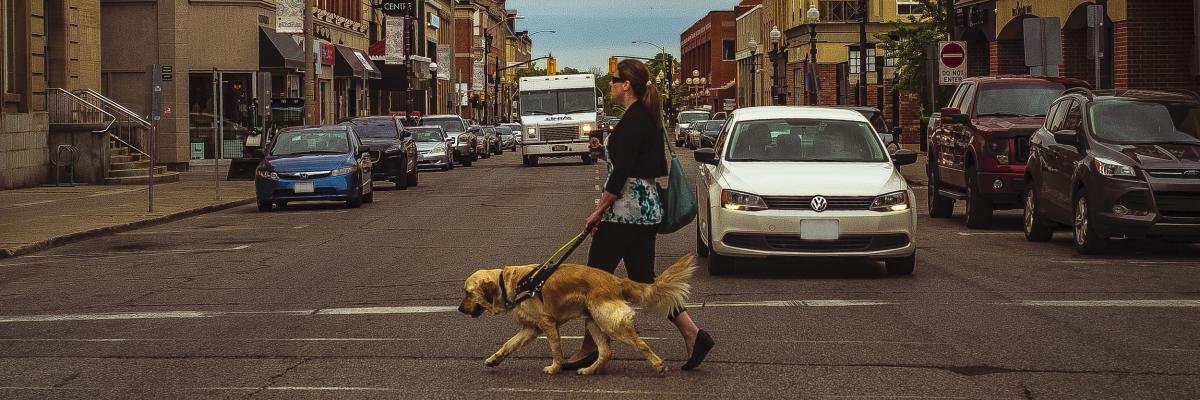"I felt an overwhelming sense of peace when I saw Piper. For better or worse, I knew that I was gaining a partner. We’d be learning to navigate the world together – as a team. The anxieties that had been front and centre in my mind as I began losing my sight suddenly seemed much less significant. Piper gave me back my confidence and freedom. Before being matched with him, I rarely left the house or visited a new place without worrying about all the barriers that I might encounter, like obstacles on the sidewalk, construction areas, or not being able to find a washroom or a seat. Now, I go where I want, when I want. I'm able to live with a sense of adventure. Together, Piper and I have the skills to get around. Although he’s restored my ability to live my life the way I choose, I still encounter barriers to accessibility and inclusion. I've been refused service by several taxis and Ubers. The most memorable situation occurred at the end of a long work day, when I requested an Uber to get home. It was November, and quite cold outside. When I got the alert telling me that my driver was nearby, I sent the driver a message letting him know that I was standing on the street with my guide dog. I told him he'd have to let me know when he arrived, as I wouldn't be able to see him. After waiting several minutes, I realized that my ride was not coming. The driver didn't respond to my message, and I was left standing in the cold without a ride, just wanting to get home. Guide dog handlers have just as much of a right to be in public spaces as any other citizen. A guide dog is a mobility device, and you can't refuse us access any more than you'd refuse access to someone using a wheelchair, walker, or cane. Beyond our legal rights, I wish that business owners knew that guide dog handlers have the right to be treated with the same dignity and respect as any other customer." -Larissa
Humans with CNIB Guide Dogs: Larissa & Piper
CTA Link
